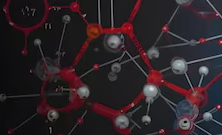Cancer remains one of the leading causes of mortality worldwide, with traditional therapies like chemotherapy often falling short, due to their systemic side effects and limited efficacy against certain tumors. Recent advancements in cancer research have unearthed a new frontier in cancer treatment—antitumor peptides. These bioactive molecules possess the remarkable ability to selectively target and eliminate tumor cells while minimizing damage to normal tissues. This article delves into the fascinating world of antitumor peptides, exploring their mechanisms of action, various production methods, and vast therapeutic applications, underscoring their potential to revolutionize cancer therapy.

Key Takeaways
- Antitumor peptides specifically target tumor cells, offering a less toxic alternative to traditional chemotherapy.
- These peptides induce apoptosis and disrupt cancer cell membranes, enhancing their therapeutic effectiveness.
- Advanced production methods, including AI and recombinant DNA technology, are key to optimizing antitumor peptide development.
Mechanisms of Action of Antitumor Peptides
In the fight against cancer, the emerging field of antitumor peptides is proving to be a game-changer. These bioactive molecules possess the unique ability to specifically target tumor cells, effectively inhibiting their growth and metastasis while inducing apoptosis, or programmed cell death. Antitumor peptides can be classified into two categories: natural peptides, derived from animals, plants, and microorganisms, and synthetic peptides, which are produced through advanced chemical synthesis. Compared to traditional chemotherapy, antitumor peptides promise a less toxic treatment alternative with high specificity for cancerous cells and straightforward synthesis processes. One of the key advantages of these peptides lies in their mechanisms of action; they induce apoptosis by disrupting mitochondrial functions and compromising cancer cell membranes. Furthermore, they can inhibit angiogenesis—the formation of new blood vessels crucial for tumor growth—and help regulate immune responses, bolstering the body’s defenses against cancer. Production methods for antitumor peptides have evolved, now incorporating techniques like solid-phase synthesis, recombinant DNA technology, and even artificial intelligence to optimize design and effectiveness. The emphasis on developing stable and long-acting formulations is crucial for maximizing therapeutic outcomes. With their versatility and potent mechanisms, antitumor peptides represent a promising and innovative approach to cancer therapy, and ongoing research may unlock even greater potential in the battle against this pervasive disease.
Production Methods and Therapeutic Applications
The production of antitumor peptides involves diverse techniques that cater to the specific properties required for their therapeutic effectiveness. Solid-phase peptide synthesis (SPPS) has become the gold standard in the creation of synthetic peptides; it allows for the rapid assembly of peptide chains with high purity, enabling researchers to craft peptides tailored to target specific cancer cell receptors. Meanwhile, recombinant DNA technology harnesses the power of genetic engineering to produce natural peptides at scale, using microbial or mammalian cells as factories to ensure the peptides are correctly folded and functional. Additionally, advancements in artificial intelligence (AI) are revolutionizing peptide design by predicting the interactions of peptides with cancer cells and optimizing their sequences for enhanced activity and stability. This use of AI not only accelerates the discovery of new peptides but also ensures that the therapeutic potential is maximized, paving the way for personalized cancer treatments that could significantly improve patient outcomes.




